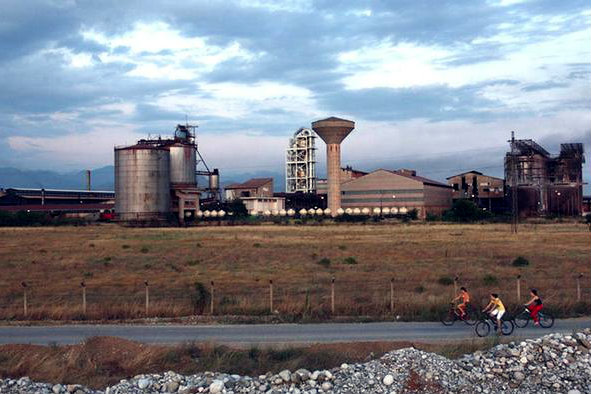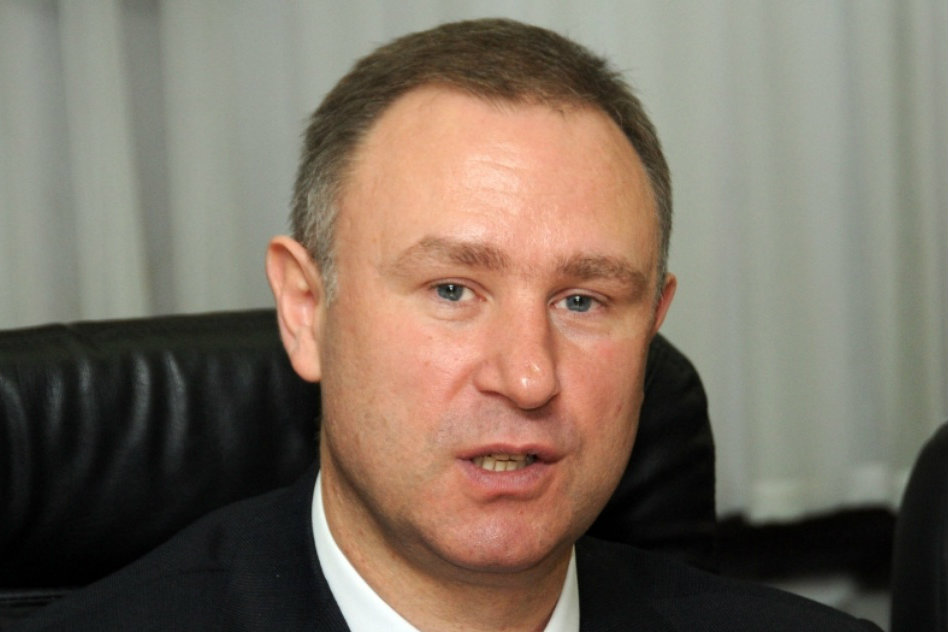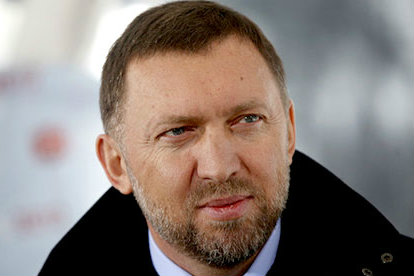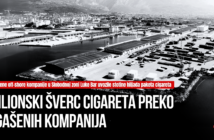Agony in installments
 While the workers of KAP are preparing for the “labor pool”, miners have been in the pit for more than 20 days trying to fight for the rights guaranteed by the law and the Collective Agreement. Also, Montenegro is the only country in the Balkans that does not have a factory for processing of aluminum.
While the workers of KAP are preparing for the “labor pool”, miners have been in the pit for more than 20 days trying to fight for the rights guaranteed by the law and the Collective Agreement. Also, Montenegro is the only country in the Balkans that does not have a factory for processing of aluminum.
A little more than four years after the representatives of the Central European Aluminum Company had taken over the management of the Aluminum Plant and Bauxite Mines, the profit and loss statement of this, as Montenegrin officials called it the “work of the century”, can be also introduced in this way:
At the time of privatization KAP had the annual production of 120 thousand tons of aluminum, and including the metal processing factory it employed 3,010 people and owed to suppliers and creditors (excluding the state) about $ 100 million.
Today, the Aluminum Plant works with less than 50 percent of its capacity, its debts increased by approximately four times (again without 130 to 150 million euros that the Government “invested” last year in the company in a form of investing money, giving bank guarantees and by taking over, that is, writing off its debts), and the remaining 1,700 workers are expecting to see what will happen with the management plans to fire additional 600 workers while promising that payment of the next salary is “uncertain” due to accumulated debts to the Electric Power Company.
In Nikšić, at the same time, 70 miners of the Bauxite Mine have been on strike for more than 20 days closed in the pit Biočki stan, fighting for their rights guaranteed by the Sales Contract and their Collective Agreement. The mine is not working for a year and the number of workers from the former 1,200 decreased to approximately 500 people. Only the debts have grown and now, as claimed by the Minister of Economy Branko Vujović, are around EUR 40 million.
We can only hope that by the time this text reaches our readers the competent authorities will have heard the miners of Nikšić and that they will end their strike in the pit Biočki stan. However it is alos possible that a new working unit with 600 workers from Electrolysis, Alumina, Anode could will be formed in Dajbabe for the same number of days… The management is trying to implement their idea under the working title “labor pool”, while the workers called the proposed innovation “a green meadows unit”. Instead in production of aluminum the workers from the “pool” would, according to the management plan, collect fruits on the plantations of the company “Plantaže” or collect garbage along Montenegrin roads (the project “Let it be clean”) until they get sick and tired of such treatment and accept to leave the company with a severance pay that is ten times smaller than the one guaranteed by the Collective Agreement.
 “At a meeting with Vyacheslav Krylov (Chairman of the Board) and Alexei Arhipov (Personnel Director) we were told that the financial situation in KAP was disastrous and that it would close down unless it was restructured and got rid of another 600 workers according to the proposed social program”, said to the media in early March President of the KAP Trade Union Board Zoran Milošević.
“At a meeting with Vyacheslav Krylov (Chairman of the Board) and Alexei Arhipov (Personnel Director) we were told that the financial situation in KAP was disastrous and that it would close down unless it was restructured and got rid of another 600 workers according to the proposed social program”, said to the media in early March President of the KAP Trade Union Board Zoran Milošević.
At the same time, KAP management announced that they had requested the court to annul the Collective Agreement signed by their predecessors, because of the “disputable” provisions according to which the workers whose position is terminated and are declared redundant according to the act on job systematization would receive severance pay from 18 to 50 thousand euros. Management was much fonder of the provisions of Branch Collective Agreement for metallurgy and metal processing industry, according to which severance pays would be somewhat greater than four thousand euros.
And the planned job systematization act can be best described by saying that that of the current 129 employees of Alumina (which, by the way, has not been working for almost a year) only 25 should be employed in that facility.
One would expect that Montenegrin government – both executive and judicial authorities – would defend the principle of the rule of law and mutually agreed rights and obligations. Instead, they stand by those who do not respect contractual duties.
“Severance pays requested by the workers cannot be paid,” said Minister Vujović explaining: “This is not real and if such decision was made losses would only multiply, the company would not work and it would lead to bankruptcy we have been trying to avoid the whole time.” And why did the employer accept obligations that he could not fulfill? This is what the Minister does not mention.
Failed promises
“We are sure that we have sold the Aluminum Plant to the right partner”, claimed the former Deputy Prime Minister Branimir Gvozdenović on 29th July 2005 trying to persuade all those who had warned that the way in which privatization of KAP and Bauxite Mine was carried out does not suggest a happy ending. “We did a good job for Montenegro and ensured the development and increased production, that is, new assortments. We are fully protected by the contract since according to it all that was signed must be respected. The breach clauses of the contract are also strong. This allows the Government to take over the company in the event of major disturbances within the KAP system. If the investment program is not fulfilled penalties are foreseen and possibility of termination of the contract before the international arbitration. That is why the negotiations which were difficult and demanding lasted for six months.”
At the same time, Gvozdenović announced signing of the contract according to which the same partner will take over the Bauxite Mine. “This will improve the situation in this company from Nikšić”, announced the current Minister of Spatial Planning. It turned out that none of the statements was true. Gvozdenović is now silent, as the problems of KAP and Bauxite Mine are no longer under the jurisdiction of his ministry.
Instead of Minister Vujović the honor to explain the general public that the laws and contracts in Montenegro are only a dead letter was given to the Minister of Labor and Social Welfare Suad Numanović.
He said: “Employers and workers must respect the law, but as a country in transition, we need to have a more flexible approach.”
And Vujović says that the workers and critically-oriented public are insufficiently responsive to the efforts of the Government to make investments which would help overcome difficulties that its partner – the majority KAP owner – has.
“Since the beginning of the crisis our concept was to preserve KAP and Bauxite Mine.
We had a diificult task to convince the employers not to introduce bankruptcy and cease production, and with reduced production and restructuring they have a chance to work. I’m afraid that workers do not respect that enough and that they tend to forget the circumstances in which everything is happening”, said Vujović.
Therefore, let’s take a look at the circumstances in which “everything is happening”. But not through the prism of global economic crisis which the competent authorities of the Government, KAP and Bauxite used as excuses, but through the item of Sales Contracts and Concession Agreements which precisely define the obligations of both contractual parties until the end of 2010.
The Sales Contract on the Sale of State Shares in KAP envisages that the Government of Montenegro “will not allow” the buyer:
– To sell, transfer or deprive any portion of the most important assets;
– To create any burden on the most important assets;
– Liquidation, bankruptcy or receivership in KAP;
– Reduction of annual production by more than 30 percent compared to 2004;
– Delay in the payment of obligations to employees;
– Delay in the payment of bills for electricity consumed provided by EPCG.
Each of these items, except those referring to liquidation and bankruptcy, the buyer has breached.
In the event that the owner violates these provisions, it is envisaged that the Government can initiate the procedure before the court for termination of the Contract to the detriment of the customer. The government also has the right to terminate the Contract without delay and without arbitration” in case that:
– Production is reduced by more than 50 percent compared to 2004;
– Debts to employees exceed five million euros;
– Debts to EPCG exceed ten million euros;
First and third condition mentioned in the previous text were met last year. If the money that the KAP management has unlawfully taken from the account of the Trade Union Organization also counts (2.3 million in February this year and 650 thousand euros shortly before the Russians took over management of the factory) along with the debts to the employees then the condition is “at the limit”.
However, termination of the Contract has not been mentioned by anyone since spring last year when, for the first and last time Minister of Finance Igor Lukšić did it.
 On the contrary – the government was very generous in spending taxpayers’ money trying to convince the agents of Oleg Deripaska to waive from the request for arbitration about 350 million euros “heavy”. “The Government”, said Minister of Economy Branko Vujović, “has taken over the duty to issue a guarantee for the loan KAP has taken in the amount of 135 million euros. Of this amount 25 million will be used for a social program, 22 for working capital, three for paying the debt to “Montenegro bonus”, 63 million for paying liabilities to the consortium of banks and 21 million to pay liabilities to CKB”. It is easy to calculate – 110 million from this package went for regular business activities which were, or at least should be, the obligation of the owner. This is exactly twice as much as the Russians paid the state funds for packages of KAP and Bauxite Mine.
On the contrary – the government was very generous in spending taxpayers’ money trying to convince the agents of Oleg Deripaska to waive from the request for arbitration about 350 million euros “heavy”. “The Government”, said Minister of Economy Branko Vujović, “has taken over the duty to issue a guarantee for the loan KAP has taken in the amount of 135 million euros. Of this amount 25 million will be used for a social program, 22 for working capital, three for paying the debt to “Montenegro bonus”, 63 million for paying liabilities to the consortium of banks and 21 million to pay liabilities to CKB”. It is easy to calculate – 110 million from this package went for regular business activities which were, or at least should be, the obligation of the owner. This is exactly twice as much as the Russians paid the state funds for packages of KAP and Bauxite Mine.
In addition to this, the government will subsidize the purchase of electricity for KAP with 45 million euros of taxpayers’ money in the period of the next three years. This amount does not include the last year’s costs fro the provision of electricity for KAP needs.
The employer’s contribution to overcome lies in the fact that he has taken money from the account of KAP Trade Union aimed for the employees housing. In addition, they changed partner and modified the contract under which they deliver all the aluminum produced to their partner. So the Swiss “Glenkor” was replaced by the Swiss “Trafigura”, which was founded by former directors of – “Glenkor”. According to the information published by “Monitor”, the arrangement with “Trafigura” is such that they receive the aluminum at a price which is lower than what was paid by “Glenkor”. For example, primary aluminum with 99.8 percent purity (“the eight”) “Glenkor” paid 50 to 60 dollars over the LME stock price (although the current premium in the region was 140-150 dollars per ton), while “Trafigura” pays it from 30 to 45 dollars.
The government did not react to the new business conditions, although according to the contract whose signing has been announced since summer last year, will formalize its return to KAP and Bauxite by taking over half of shares which were the owned by CEAC after the privatization.
Almost identical story is happening in Nikšić. The Concession Agreement according to which AD Bauxite Mines gained the right to exploit minerals in the regions Nikšićka Župa, from November 2005 foresees that the Government has the right to terminate the Agreement, among other things, in case the concessionaire gets in the state of illiquidity, if he does not operate for a period of one year, or does not mine ore in accordance with the schedule and quantities established by the Agreement (650 thousand tons per year of which 180 thousand tons from the pit Biočki stan). Although at least two of these three conditions are breached the Government officially did not challenge the awarded concession. And, according to the Agreement, if the Bauxite had been deprived of the concession, the Sales Contract relating to the shares of the Bauxite Mine and the Aluminum Plant would be terminated.
In this way the Government would restore its ownership of the companies which were obviously, based on the contract from 2004, given to wrong hands. Instead, it decided to cover someone else’s costs with the taxpayers’ money, while the total bill that the state of Montenegro may happen to pay in the end is rising from day to day. Branko Vujović gives a fairly accurate diagnosis of the problems related to KAP and Bauxite Mine: “In the time of crisis the owners were on their own and they were financially less oriented towards the factories in Montenegro. They managed to survive thanks to the current production and some smaller financial boost of the owners leaving it to the Government to assess whether they have the interest to preserve the company or not”.
Why is then the therapy wrong? “To buy this opportunity for Montenegrin aluminum industry means to create conditions for, if not four thousand, then at least 1.5 to two thousand families to have decent life from this industry”, in the summer last year Prime Minister Milo Đukanović said after the Government had accepted the draft settlement agreement with the KAP majority owner.
However, this settlement agreement has not come to life until the present moment. Representatives of the Government and CEAC are still “agreeing on the details”. Then this agreement should be verified by the Assembly of KAP Shareholders. Montenegrin Parliament was not asked for the opinion at all. The essence of this Agreement, as it will be proved, is lying in as deeper filling of all data on mutual partnership that CEAC and the Government collected and submitted them to the Arbitration Court in Frankfurt as possible. Officially, the Russians were charging us for about 360 million euros for a false disclosure of data and failure to fulfill contractual duties. The Government, albeit unofficially, charged them for about 200 million euros.
And then, the feuding partners were in “each other’s arms” again. The restoration of this business friendship cost us, so far, almost 200 million euros. And it doesn’t matter that the only thing that remained from the Aluminum Plant is only the name. Of the former reproduction chain that made almost one third of Montenegro’s gross domestic product only the ingot factory remained that cannot function without multiple state subsidies.
However, someone has filled pockets in this mess. Or, should we believe that it is totally normal to see that a ton of bauxite prior to privatization cost 26 euros, but before the cessation of production in the Mine it cost 60 euros. And that it is ok to see the price of KPA aluminum production rise from 1,650 in the same period to more than three thousand dollars per ton. In the meantime, Montenegro has become the only country in the Balkans that has no aluminum processing plant.



